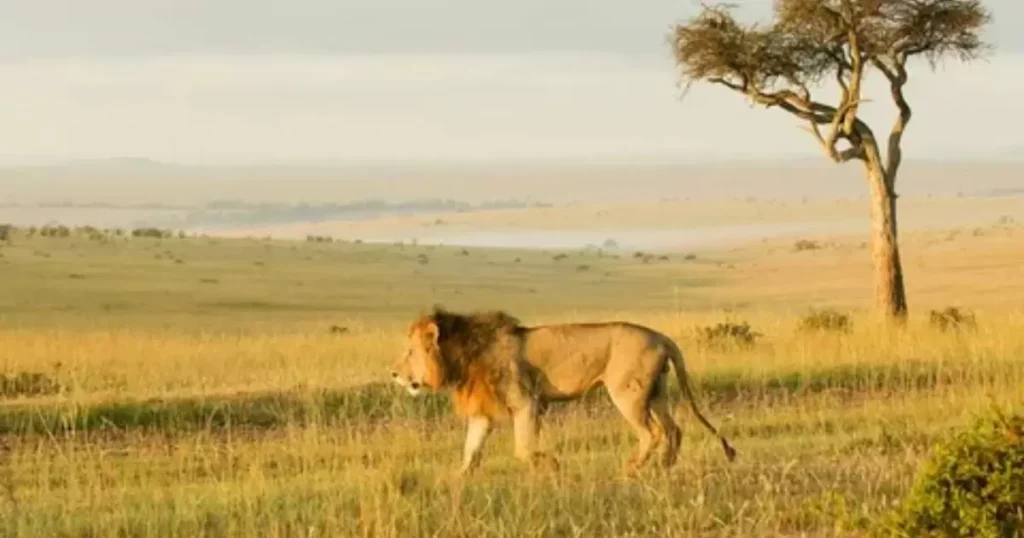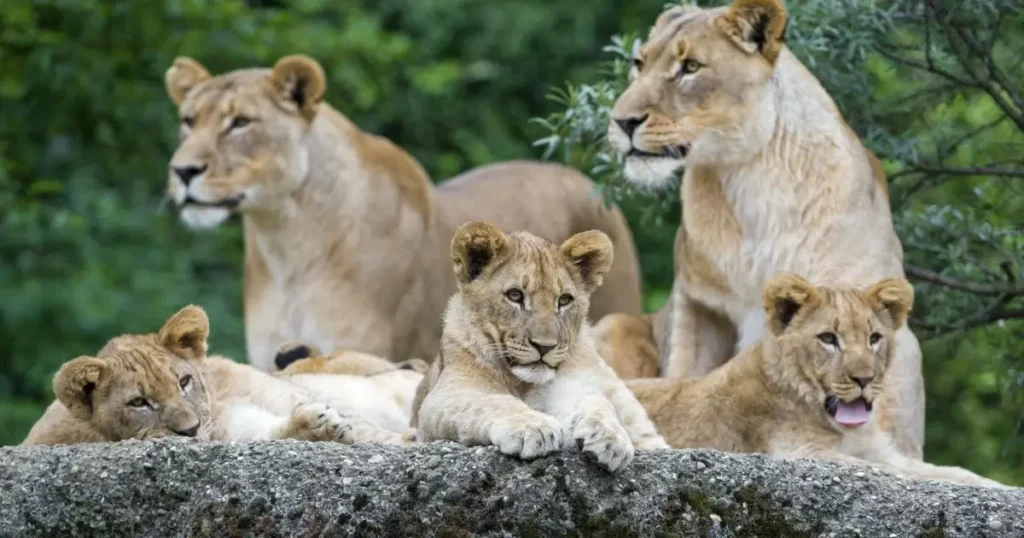Lions, the majestic and powerful big cats known for their ferocity and social structure, roam the savannas and grasslands of Africa in prides. When observed together, these magnificent creatures are described using various collective nouns, each offering insight into their behavior and interactions.
In this article, we will explore the concept of collective nouns and delve into some intriguing examples specifically related to lions.
What Are Collective Nouns?
Collective nouns are words used to describe a group of individuals or things considered as a single entity. These nouns simplify our language and provide a more vivid and interesting way to refer to collections of objects, animals, or people.
For example, instead of saying “a group of birds,” we can say “a flock of birds,” which is more expressive and efficient.
Best Collective Nouns for Lions
- A pride of lions
- A troop of lions
- A sault of lions
- A coalition of lions
- A family of lions
- A gang of lions
- A flock of lions
- A herd of lions
- A tribe of lions
- A constellation of lions
Let’s explore each of these collective nouns in more detail.
A Pride of Lions
Explanation
A “pride of lions” is perhaps the most well-known collective noun for lions, representing a group of lions living and hunting together, typically led by a dominant male.
Scenario
In the vast African savanna, a pride of lions basked in the afternoon sun, their majestic silhouettes casting long shadows on the golden grass.

A Troop of Lions
Explanation
A “troop of lions” suggests a cohesive group of lions moving or acting together, often seen during territorial patrols or hunting expeditions.
Scenario
The safari guide pointed out a troop of lions crossing the dusty plain, their muscular bodies exuding strength and confidence.
A Sault of Lions
Explanation
A “sault of lions” is a term used to describe a group of lions leaping or pouncing together, showcasing their agility and hunting prowess.
Scenario
At the waterhole, a sault of lions ambushed a herd of unsuspecting antelopes, their coordinated attack resulting in a successful hunt.
What Are The Collective Nouns for “Goldfish”
A Coalition of Lions
Explanation
A “coalition of lions” refers to a group of male lions that form alliances to defend territory or challenge rival prides.
Scenario
In the twilight hours, a coalition of lions roared defiantly at the borders of their territory, asserting their dominance over the vast plains.
A Family of Lions
Explanation
A “family of lions” emphasizes the familial bonds within a pride, including lionesses and their cubs, nurturing and protecting each other.
Scenario
Under the watchful gaze of the lioness, a family of lions rested peacefully under the shade of an acacia tree, their cubs playfully tumbling around.

A Gang of Lions
Explanation
A “gang of lions” suggests a group of young or sub-adult lions roaming together, learning to hunt and navigate their environment.
Scenario
In the twilight hours, a gang of lions ventured out from the safety of their den, their playful antics echoing through the night.
A Flock of Lions
Explanation
A “flock of lions” is a whimsical term used to describe a large group of lions, perhaps emphasizing their collective movement or appearance.
Scenario
The wildlife photographer captured a flock of lions traversing the vast expanse of the Serengeti, their golden coats shimmering in the sunlight.
A Herd of Lions
Explanation
A “herd of lions” is a less common but still evocative term used to describe a group of lions, perhaps drawing parallels to other large herbivores.
Scenario
The biologist observed a herd of lions congregating around a water source, their presence commanding respect from other animals in the vicinity.
A Tribe of Lions
Explanation
A “tribe of lions” suggests a close-knit social group, bonded by shared experiences and survival strategies.
Scenario
Deep in the heart of the jungle, a tribe of lions thrived amidst the dense foliage, their intricate social dynamics ensuring their collective well-being.
A Constellation of Lions
Explanation
A “constellation of lions” is a poetic term that portrays lions as celestial beings, perhaps highlighting their regal and celestial qualities.
Scenario
As night fell over the African plains, a constellation of lions emerged from the darkness, their golden forms shimmering under the starlit sky.
Interesting Facts About Lions
Lions are the only truly social cats, forming prides that consist of related females and their offspring, along with a few adult males. They are apex predators and play a crucial role in maintaining the ecological balance of their habitats.
Lions are known for their distinctive roars, which can be heard over long distances and serve as a means of communication within prides. Despite being ferocious hunters, lions are also affectionate and often engage in grooming and bonding behaviors within their social groups.
Final Thought
Collective nouns offer a unique lens through which we can understand and appreciate the group dynamics and behavioral patterns of animals like lions.
By using collective nouns, we not only describe groups of animals more vividly but also acknowledge the complexity and interconnectedness of the natural world.
Next time you encounter a pride of lions in the wild or even in a documentary, reflect on the significance of these collective nouns and how they enrich our understanding of the animal kingdom.

I’m Olivia Martinez, the educational mind behind “English WRAP Up.” I’ve had a blast teaching and grading English tests like TOEFL, IELTS, BULATS, FCE, CAE, and PTEG. At English WRAP Up, we’re dedicated to turning your exam preparation into a success story. Let’s make your English skills shine—join me in the educational journey at English WRAP Up!



